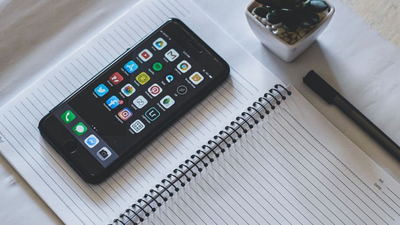
Two of the biggest tech companies have confirmed the government and foreign agencies can spy on you using your smartphone.
And they're likely helping.
Oregon Sen. Ron Wyden wrote a letter to the Justice Department last Wednesday revealing unidentified foreign governments are asking Apple and Google for push notification data on you.
That data can contain your personal information.
According to a Reuters report, the U.S. government is likely spying on you, too. They spoke to a source who they say is close to the subject. That unnamed source claims federal agencies have asked both companies for push notification metadata.
If you own a smartphone, you have probably received a push notification. It's the alert you receive on your phone when you get a text message, a new email or an update from your favorite mobile game.
Those push notifications contain data. That data can tell Apple or Google who's receiving the notification, what app is sending it, and what device the user has. Some of the metadata found in push notifications can even tell you the contents of a text message.
Foreign entities and some U.S. agencies can then request that data. When Wyden asked, both companies said they were under a gag order and could not discuss information relating to push notification data.
Both Apple and Google have taken several steps to address the major security and privacy concerns in Wyden's letter.
Apple has since updated its law enforcement guidelines and tells the public how push notification data can be used to breach your security.
According to the guidelines, law enforcement must obtain a judge's approval in order to request this information. Also, Apple will begin to break out the requests for push notifications they have received in its next Transparency Report.
We contacted Apple and received this statement from a company spokesperson.
"Apple is committed to transparency and we have long been a supporter of efforts to ensure that providers are able to disclose as much information as possible to their users. In this case, the federal government prohibited us from sharing any information and now that this method has become public we are updating our transparency reporting to detail these kinds of requests."
As far as Google, the company hasn't done anything specific since Senator Wyden's letter came out, but it does have tools to monitor your data. First, it's important to note, for the most part, you would probably need a non-disclosure order to receive data about an individual or even a court order.
Google does offer a public transparency report that's more all-encompassing. Rather than individual statistics about data requests, it gives an overarching view. We reached out to Google, and a spokesperson had this to say,
"We were the first major company to publish a public transparency report sharing the number and types of government requests for user data we receive, including the requests referred to by Senator Wyden. We share the Senator’s commitment to keeping users informed about these requests."
While Google and Apple have tools and safeguards to help make sure your data stays private, there are steps you can take to stop your push notification data from being shared. Namely, you can turn off push notifications. Apple and Google can't share information they don't have.
Settings may vary depending on your Android phone’s manufacturer.
Some of you may still choose to allow push notifications for various reasons, such as convenience, personalization, or engagement. However, you should be aware of the potential risks of sharing your data. To protect yourself, you can take some measures, such as:
While the methods mentioned above can help protect your data, they are not foolproof. If you are worried, and you should be, that Google and Apple are secretly helping governments spy on your smartphone, here are some additional steps you can take to protect your data and privacy. However, none of these methods are foolproof or guaranteed to work, and some of them may have drawbacks or limitations.
With news emerging that both Apple and Google have been cooperating with governments and foreign agencies to access sensitive user data through smartphones, it's never been more critical to be vigilant about your online privacy. While the extent of this surveillance remains unclear, one alarming detail has become apparent: push notification data, potentially containing your personal information, may be compromised.
These developments highlight the importance of taking proactive measures to protect your digital footprint. To do so, you can go to haveibeenpwned.com and enter your email address into the search bar. The website will search to see what data of yours is out there and display if there were data breaches associated with your email address on various sites. You may have even received an email from the website already saying that some of your data was stolen, and you should look into this immediately if that is the case.
The fact that two of the biggest names in tech are potentially helping the government keep track of you is startling. But when you start to consider foreign entities might be using that same information to spy on you, it gets even more frightening. It's important to remember that there's no right to privacy. So it's up to you to make sure your data stays safe.
Are you less likely to use Apple and Google products? What steps are you taking to keep your data safe? Let us know by writing us at Cyberguy.com/Contact.
For more of my tech tips & security alerts, subscribe to my free CyberGuy Report Newsletter by heading to Cyberguy.com/Newsletter.
Answers to the most asked CyberGuy questions:
CyberGuy Best Holiday Gift Guide
Copyright 2023 CyberGuy.com. All rights reserved.